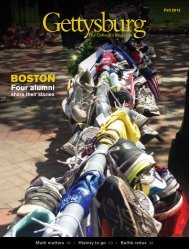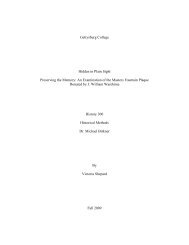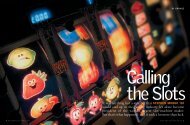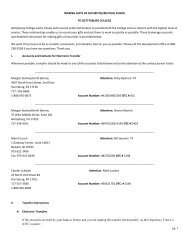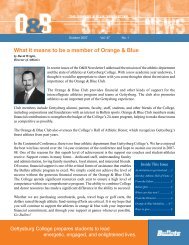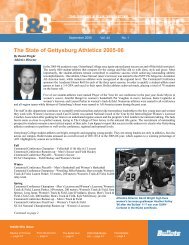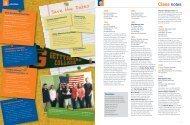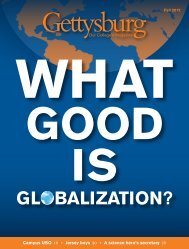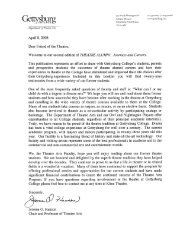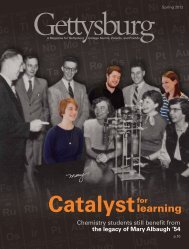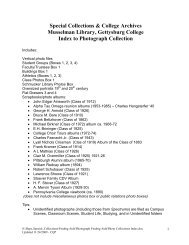Sweet Tooth for Empire: Sugar and the British Atlantic World
Sweet Tooth for Empire: Sugar and the British Atlantic World
Sweet Tooth for Empire: Sugar and the British Atlantic World
You also want an ePaper? Increase the reach of your titles
YUMPU automatically turns print PDFs into web optimized ePapers that Google loves.
FROM THE EDITOR<br />
In 2002, <strong>the</strong> Department of History at Gettysburg College challenged its students to produce <strong>the</strong><br />
first issue of an annual, undergraduate historical journal. Each year since that initial call <strong>for</strong><br />
papers, student historians have eagerly prepared, submitted, revised, <strong>and</strong> edited <strong>the</strong>ir work <strong>for</strong><br />
publication. Now in its eighth volume, <strong>the</strong> Journal continues to be entirely student-generated. A<br />
talented panel of current History majors supervises every step — from soliciting <strong>and</strong> critiquing<br />
papers to assembling <strong>and</strong> making available <strong>the</strong> final product. This year, <strong>the</strong> Journal was well<br />
served by Savannah Ruth ’09, Evan Ro<strong>the</strong>ra ’10, Lisa Ungemach ’11, <strong>and</strong> Rachel Santose ’11.<br />
The pages which follow attest not only to <strong>the</strong> ef<strong>for</strong>ts of our students, but to <strong>the</strong> quality of <strong>the</strong>ir<br />
advisors in <strong>the</strong> Department of History. Behind each paper in this issue is not only a talented<br />
student, but a supportive advisor.<br />
The lead articles were <strong>the</strong> co-recipients of <strong>the</strong> 2008 Edwin T. Greninger ‘41 Prize in History,<br />
an annual award presented <strong>for</strong> excellence in historical writing. In “Since This is a Horrible<br />
Thing to Think About: European Perceptions of Native American Cannibalism,” Evan Ro<strong>the</strong>ra<br />
’10 attempts to underst<strong>and</strong> how <strong>the</strong> discovery <strong>and</strong> exploration of <strong>the</strong> New <strong>World</strong> affected <strong>the</strong><br />
Old. Exploring <strong>the</strong> writings of Columbus, da Cuneo, <strong>and</strong> Diego Alvarez Chanca, Ro<strong>the</strong>ra<br />
explains that Europeans were at once horrified <strong>and</strong> fascinated by cannibalism. Originally<br />
exploited as a justification <strong>for</strong> <strong>the</strong> enslavement of indigenous peoples, with time, writers like<br />
Jean de Léry <strong>and</strong> Montaigne used cannibalism to appraise European society. Kathryn O’Hara<br />
’10 studies female captivity narratives in colonial New Engl<strong>and</strong>. Unpacking <strong>the</strong> conflicting<br />
voices of <strong>the</strong> captives <strong>and</strong> <strong>the</strong>ir male editors, O’Hara argues that <strong>the</strong>se documents provide insight<br />
into <strong>the</strong> social, religious, <strong>and</strong> political worlds of Puritan New Engl<strong>and</strong>.<br />
Two shorter pieces follow. In an imaginatively-titled essay, “<strong>Sweet</strong> <strong>Tooth</strong> <strong>for</strong> <strong>Empire</strong>,” Colin



